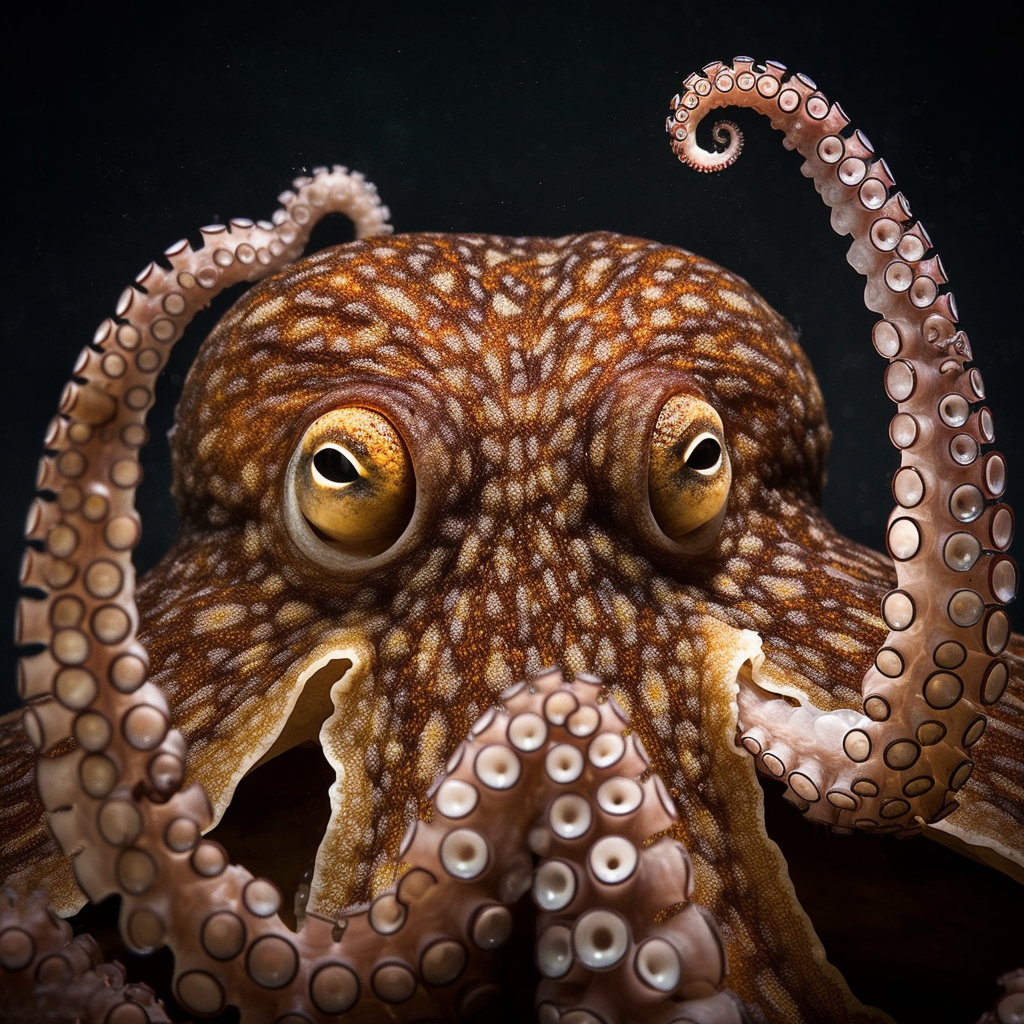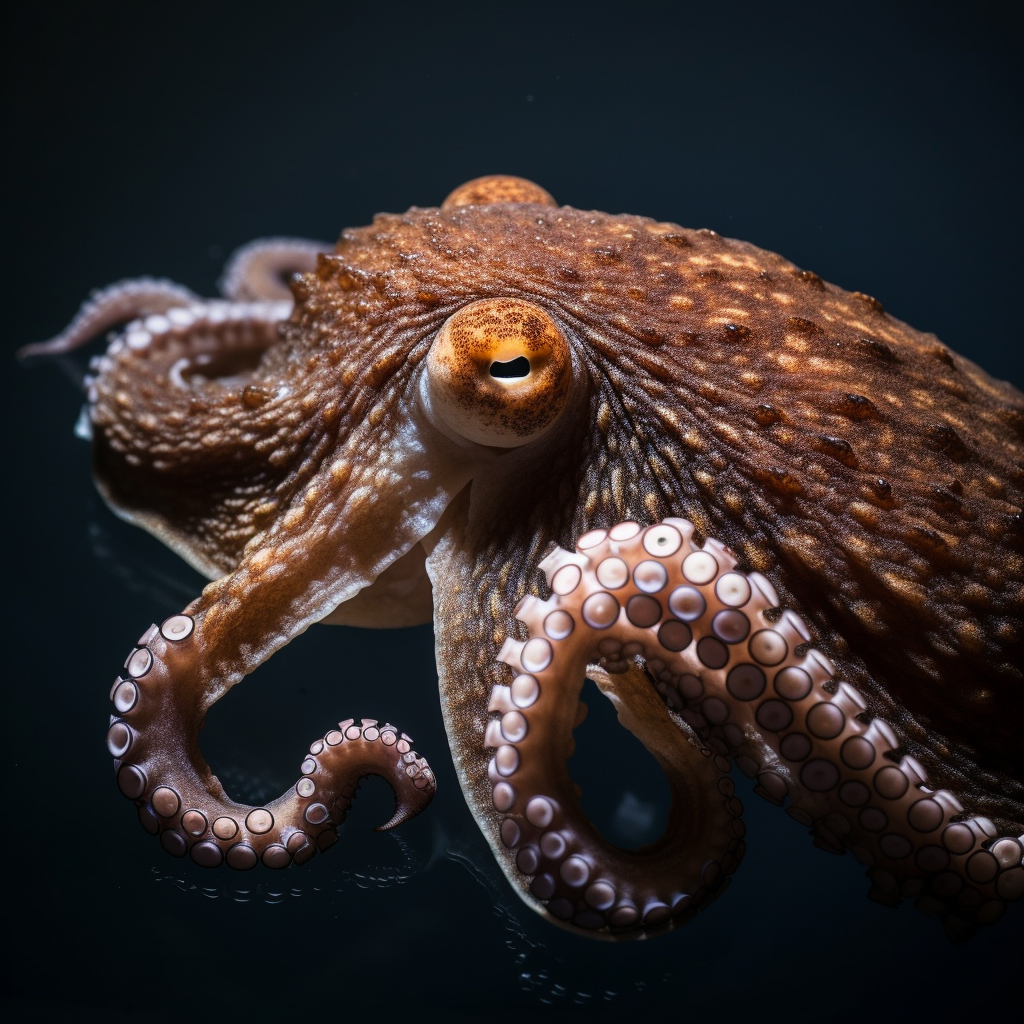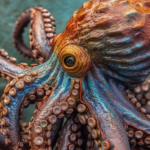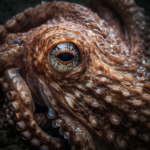Octopus vulgaris, commonly known as the common octopus, is a fascinating creature that inhabits the oceans around the world. These intelligent and highly adaptable cephalopods have captured the curiosity of scientists and marine enthusiasts alike. One of the questions often asked about these creatures is, “How long do Octopus vulgaris live?” In this article, we will explore the lifespan of Octopus vulgaris, factors that influence their longevity, and some interesting facts about these incredible creatures. So, let’s dive in and uncover the mysteries of the common octopus’s lifespan.
Key Takeaways
- The common octopus (Octopus vulgaris) has a relatively short lifespan, typically living for only 1 to 2 years.
- Factors such as environmental conditions, predation, and reproductive activity can influence the lifespan of Octopus vulgaris.
- Despite their short lifespan, octopuses are highly intelligent and adaptable creatures, capable of complex behaviors and problem-solving.
Understanding Octopus Vulgaris: An Overview
A. What is Octopus Vulgaris?
Octopus vulgaris, also known as the common octopus, is a fascinating marine creature that belongs to the class Cephalopoda. It is one of the most well-known species of octopus and is widely distributed throughout the Mediterranean Sea and the Eastern Atlantic Ocean. Octopus vulgaris is characterized by its soft body, eight arms, and large, intelligent eyes.
Unlike other octopus species, Octopus vulgaris lacks an internal or external shell, which allows it to squeeze through tight spaces and hide in crevices. Its body is covered in chromatophores, specialized pigment cells that enable it to change color and blend in with its surroundings. This remarkable ability to camouflage helps the octopus evade predators and hunt for prey.
B. Where Does Octopus Vulgaris Live?
Octopus vulgaris is primarily found in shallow coastal waters, although it can also inhabit depths of up to 200 meters (656 feet). It prefers rocky or sandy substrates, where it can burrow or hide in crevices. This species is highly adaptable and can be found in various habitats, including coral reefs, seagrass beds, and estuaries.
The distribution of Octopus vulgaris extends from the Mediterranean Sea to the Eastern Atlantic Ocean, ranging from the southwestern coast of Portugal to the western coast of Africa. It is particularly abundant in the Mediterranean, where it is an important part of the local marine ecosystem.
C. How Do Octopuses See What They See?
Octopuses, including Octopus vulgaris, have highly developed visual systems that allow them to perceive their surroundings and interact with their environment. Their eyes are well-adapted for underwater vision and have a similar structure to vertebrate eyes.
Each eye of an octopus has a cornea, lens, and retina, just like human eyes. However, octopuses have a more advanced retina that contains both rod and cone cells, enabling them to see in both dim and bright light conditions. This gives them excellent visual acuity and the ability to detect colors.
Interestingly, octopuses have a horizontal pupil, which allows them to see a wide field of view. They can also move their eyes independently, giving them a 360-degree view of their surroundings. This exceptional visual system helps them navigate their environment, locate prey, and avoid predators.
In addition to their eyes, octopuses also have other sensory organs, such as chemoreceptors, which allow them to detect chemicals in the water. These receptors help them locate food and potential mates.
Overall, Octopus vulgaris is a remarkable species with unique adaptations that enable it to thrive in its marine habitat. Its ability to change color, its preference for specific habitats, and its advanced visual system make it a fascinating creature to study and appreciate.
The Lifespan of Octopus Vulgaris
Octopus vulgaris, also known as the common octopus, is a fascinating creature found in the oceans around the world. These intelligent and adaptable creatures have captured the curiosity of scientists and marine enthusiasts alike. One question that often arises is: how long do Octopus vulgaris live? Let’s explore the lifespan of these remarkable creatures and the factors that influence their longevity.
A. How Long Do Octopus Vulgaris Live?
The lifespan of Octopus vulgaris can vary depending on various factors. On average, these octopuses live for about 1 to 2 years in the wild. However, some individuals have been known to live up to 3 years or even longer under optimal conditions. It’s important to note that these are general estimates, and individual octopuses may have different lifespans based on their unique circumstances.
B. Factors Influencing the Lifespan of Octopus Vulgaris
Several factors can influence the lifespan of Octopus vulgaris. Let’s take a closer look at some of the key factors:
-
Reproductive Cycle: Octopus vulgaris has a unique reproductive cycle that plays a significant role in their lifespan. After reaching sexual maturity, which typically occurs around 10 to 12 months of age, female octopuses lay eggs. This process is energetically demanding and often leads to the death of the mother shortly after the eggs hatch. This means that the lifespan of female octopuses is usually shorter compared to males, who do not experience this reproductive process.
-
Environmental Conditions: The environment in which an octopus lives can greatly impact its lifespan. Octopus vulgaris thrives in temperate and tropical waters, where they have access to abundant food sources and suitable habitats. In captivity, where environmental conditions can be controlled and optimized, octopuses have been known to live longer than their wild counterparts.
-
Predation and Disease: Like many other marine creatures, Octopus vulgaris faces threats from predators and diseases. Predatory animals such as sharks, larger fish, and even other octopuses can pose a risk to their survival. Additionally, diseases and infections can also impact their lifespan. However, octopuses have evolved remarkable camouflage and defensive strategies to protect themselves from predators, increasing their chances of survival.
C. How Long Can Octopus Vulgaris Live Under Optimal Conditions?
Under optimal conditions in captivity, Octopus vulgaris can live longer than their wild counterparts. With proper care, a well-maintained tank, and a balanced diet, some individuals have been known to live up to 3 years or even longer. These extended lifespans in captivity can be attributed to the absence of predation, access to consistent food sources, and a controlled environment that minimizes stress and disease.
It’s worth noting that while Octopus vulgaris may have a relatively short lifespan compared to some other marine species, they make the most of their time on Earth. These intelligent creatures exhibit complex behaviors, problem-solving skills, and remarkable adaptability. Their short but eventful lives are a testament to the wonders of the natural world.
In conclusion, the lifespan of Octopus vulgaris can range from 1 to 2 years in the wild, with some individuals living up to 3 years or longer under optimal conditions in captivity. Factors such as reproductive cycle, environmental conditions, predation, and disease can influence their lifespan. Understanding these factors not only sheds light on the biology of these fascinating creatures but also highlights the importance of conservation efforts to protect their habitats and ensure their continued existence in our oceans.
Gender Differences in Octopus Vulgaris Lifespan
A. How Long Do Male Octopus Vulgaris Live?
When it comes to the lifespan of Octopus vulgaris, there are some interesting gender differences to consider. Male octopuses typically have a shorter lifespan compared to their female counterparts. While females can live up to five years or more, males generally only live for about one to two years.
There are a few reasons why male octopuses have a shorter lifespan. One factor is the reproductive process. Male octopuses have a unique mating behavior where they use a specialized arm called a hectocotylus to transfer sperm into the female’s mantle cavity. This process is physically demanding and can be quite taxing on the male’s body.
Another reason for the shorter lifespan of male octopuses is the hormonal changes that occur during the mating process. After mating, male octopuses experience a significant increase in hormone levels, which can have negative effects on their overall health and lifespan.
B. Comparing Lifespans: Male vs Female Octopus Vulgaris
When comparing the lifespans of male and female Octopus vulgaris, it becomes clear that females have a longer life expectancy. As mentioned earlier, females can live up to five years or more, while males typically live for only one to two years.
The longer lifespan of female octopuses can be attributed to their reproductive strategy. Unlike males, females invest a significant amount of energy into producing and caring for their eggs. Once the eggs are laid, the female octopus dedicates herself to protecting and aerating them until they hatch. This maternal care ensures the survival of her offspring but also comes at a cost to her own health and longevity.
Additionally, female octopuses have been known to engage in a fascinating behavior known as “semelparity.” This means that after laying and caring for their eggs, female octopuses enter a state of senescence, or rapid aging, and ultimately die shortly after their eggs hatch. This strategy ensures that the female’s energy is fully devoted to the survival of her offspring.
In contrast, male octopuses do not invest as much energy into reproduction. Once they have successfully mated, their role in the reproductive process is complete. This difference in reproductive investment is one of the main reasons why female octopuses have a longer lifespan compared to males.
In conclusion, male Octopus vulgaris typically live for about one to two years, while females can live up to five years or more. The shorter lifespan of males can be attributed to the physical demands and hormonal changes associated with mating, as well as their lower investment in reproduction compared to females. Understanding these gender differences in lifespan provides valuable insights into the unique reproductive strategies of Octopus vulgaris.
The Intricacies of Octopus Vulgaris’ Life Cycle

A. From Birth to Adulthood: The Life Cycle of Octopus Vulgaris
The life cycle of Octopus vulgaris, commonly known as the common octopus, is a fascinating journey filled with various stages of growth and development. Let’s take a closer look at how these incredible creatures progress from birth to adulthood.
-
Hatching: The life cycle of Octopus vulgaris begins when the female octopus lays her eggs. These eggs are typically laid in a protected area, such as a crevice or a den. The female octopus guards the eggs diligently, ensuring their safety and survival.
-
Embryonic Development: Inside the eggs, the embryos of Octopus vulgaris undergo a remarkable transformation. Over the course of several weeks, the eggs develop into fully formed baby octopuses. During this stage, the embryos rely on the nutrients stored within the egg capsule for their growth.
-
Hatching and Early Life: Once the embryos have fully developed, they hatch from their eggs. At this stage, the baby octopuses are incredibly small and vulnerable. They must navigate the challenges of their environment, including predators and finding food, to ensure their survival.
-
Juvenile Phase: As the baby octopuses grow, they enter the juvenile phase of their life cycle. During this stage, they continue to develop and acquire the skills necessary for survival. They learn to hunt, camouflage themselves, and navigate their surroundings with agility.
-
Maturity: The final stage of the life cycle is maturity. Octopus vulgaris typically reach sexual maturity between the ages of one and two years. At this point, they are fully grown and capable of reproducing. Maturity marks the transition from adolescence to adulthood for these remarkable creatures.
B. How Do Octopuses Live Long?
Octopus vulgaris is known for its relatively long lifespan compared to other octopus species. So, what factors contribute to their longevity? Let’s explore some of the reasons why octopuses can live for an extended period.
-
Body Composition: Octopus vulgaris has a unique body composition that contributes to its longevity. Unlike many other species, octopuses have a relatively low metabolic rate. This means that they require less energy and can conserve resources, allowing them to live longer.
-
Environmental Adaptations: Octopuses are highly adaptable creatures. They possess remarkable camouflage abilities, which help them evade predators and secure their survival. Their ability to blend seamlessly into their surroundings allows them to avoid dangerous situations and live longer lives.
-
Reproductive Strategy: Octopus vulgaris has a unique reproductive strategy that also contributes to its longevity. Female octopuses invest a significant amount of energy into producing and caring for their eggs. This investment ensures the survival of their offspring, increasing the chances of passing on their genes to future generations.
-
Predator Avoidance: Octopuses have evolved various mechanisms to avoid predation. They can change color and texture to match their surroundings, making it difficult for predators to detect them. Additionally, they possess the ability to release ink, creating a diversion and allowing them to escape from potential threats.
In conclusion, the life cycle of Octopus vulgaris is a complex and intriguing process. From hatching to maturity, these creatures undergo significant changes and face numerous challenges. Their ability to adapt to their environment, invest in reproduction, and employ survival strategies contributes to their relatively long lifespan. Octopus vulgaris truly exemplifies the wonders of nature and the marvels of the underwater world.
The Role of Environment in Octopus Vulgaris’ Lifespan

Octopus vulgaris, commonly known as the common octopus, is a fascinating creature with a relatively short lifespan. While factors such as genetics and predation play a role in determining their longevity, the environment in which they live also has a significant impact on their lifespan. In this section, we will explore the influence of habitat on the lifespan of Octopus vulgaris and how the environment affects their visual perception.
A. The Impact of Habitat on Lifespan
Octopus vulgaris can be found in a variety of habitats, including rocky shores, coral reefs, and seagrass beds. The specific habitat in which an octopus resides can have a profound effect on its lifespan. For example, octopuses living in shallow waters with abundant food sources tend to have shorter lifespans compared to those residing in deeper waters with fewer predators.
In shallow waters, octopuses are more exposed to potential threats, such as predation by larger fish or birds. This constant risk of being hunted can lead to a higher mortality rate and a shorter lifespan. On the other hand, octopuses living in deeper waters have a better chance of avoiding predators and can live longer as a result.
Furthermore, the availability of food in their habitat also plays a crucial role in determining the lifespan of Octopus vulgaris. Octopuses require a diet rich in protein and other nutrients to thrive. In environments with limited food resources, octopuses may struggle to find enough sustenance, leading to malnutrition and a shorter lifespan. Conversely, octopuses living in habitats with an abundance of prey have a higher chance of reaching their maximum lifespan.
B. How Does the Environment Influence How They See What They See?
Octopus vulgaris has highly developed eyesight, allowing them to perceive their surroundings in intricate detail. However, the environment in which they live can significantly influence how they see and interpret visual information.
One fascinating aspect of Octopus vulgaris’ visual perception is their ability to mimic their surroundings. This remarkable camouflage technique helps them blend seamlessly into their environment, making it easier to evade predators and capture prey. By mimicking the colors and patterns of their surroundings, octopuses can effectively become invisible to unsuspecting prey or potential threats.
The environment also affects the visual stimuli that octopuses encounter. In habitats with clear water and ample sunlight, octopuses have better visibility, allowing them to spot prey and predators more easily. Conversely, in murky or turbid waters, their visual range may be limited, making it more challenging to locate food or detect approaching predators.
Additionally, the availability of hiding places in their environment can impact Octopus vulgaris’ lifespan. Octopuses are known for their intelligence and problem-solving abilities, and they often use their surroundings to create shelters and dens. These hiding places provide protection from predators and serve as a safe haven during periods of rest. In environments with limited hiding spots, octopuses may be more vulnerable to predation, leading to a shorter lifespan.
In conclusion, the environment plays a crucial role in the lifespan of Octopus vulgaris. Factors such as habitat type, food availability, and visual stimuli all contribute to the overall longevity of these fascinating creatures. By understanding the impact of the environment on octopuses, we can gain valuable insights into their behavior and survival strategies.
Tentacles: A Key to Octopus Vulgaris’ Longevity?

A. How Many Tentacles Do Octopus Vulgaris Have?
Octopus vulgaris, commonly known as the common octopus, is a fascinating creature with a unique set of characteristics. One of the most distinctive features of this species is its tentacles. But just how many tentacles does an Octopus vulgaris have?
Octopus vulgaris typically has eight tentacles, which are also known as arms. These arms are lined with suckers that help the octopus navigate its environment, catch prey, and manipulate objects. Each tentacle is incredibly flexible and can move independently, allowing the octopus to perform complex tasks with remarkable dexterity.
B. The Role of Tentacles in Octopus Vulgaris’ Life
The tentacles of Octopus vulgaris play a crucial role in its survival and longevity. These appendages are not only used for locomotion but also serve various other functions that contribute to the octopus’s overall well-being.
-
Locomotion: Octopus vulgaris primarily uses its tentacles for propulsion. By contracting and expanding its muscular arms, the octopus can move through the water with remarkable agility. The tentacles act as both paddles and rudders, allowing the octopus to navigate its surroundings efficiently.
-
Feeding: The tentacles of Octopus vulgaris are equipped with specialized suckers that help the octopus capture and manipulate its prey. These suckers are incredibly strong and can create a powerful grip, enabling the octopus to catch and hold onto a variety of marine organisms. The tentacles also have sensory cells that allow the octopus to taste and smell its food before consuming it.
-
Camouflage and Defense: Octopus vulgaris is renowned for its ability to change color and texture, blending seamlessly with its surroundings. The tentacles play a crucial role in this camouflage process. By manipulating their shape, color, and texture, the octopus can mimic its environment, effectively hiding from predators or ambushing prey.
-
Communication and Interaction: Octopus vulgaris is an intelligent creature that exhibits complex behaviors. The tentacles are instrumental in communication and interaction with other octopuses and the environment. Through a combination of visual displays, touch, and chemical signals, octopuses can convey information, establish dominance, and engage in mating rituals.
In conclusion, the tentacles of Octopus vulgaris are not only essential for locomotion but also serve multiple functions that contribute to the octopus’s survival and longevity. These remarkable appendages allow the octopus to navigate its environment, catch prey, defend itself, and communicate with other members of its species. The intricate abilities of the tentacles make Octopus vulgaris a truly remarkable creature. Conclusion
In conclusion, the lifespan of Octopus vulgaris, commonly known as the common octopus, can vary depending on various factors such as habitat, diet, and environmental conditions. On average, these fascinating creatures live for about 1 to 2 years in the wild. However, in captivity, where they are provided with optimal conditions and care, they have been known to live up to 3 to 5 years. Octopus vulgaris undergoes a complex life cycle, with a short but intense period of reproduction and growth. Despite their relatively short lifespan, these intelligent and adaptable creatures have captivated the curiosity of scientists and marine enthusiasts alike. Understanding their lifespan and behavior is crucial for their conservation and ensuring their continued existence in our oceans.
Frequently Asked Questions
How long do Octopus vulgaris live?
Octopus vulgaris, also known as the common octopus, typically live between 1 to 2 years. This lifespan can vary depending on environmental factors and predation.
Where does Octopus vulgaris live?
Octopus vulgaris are found in various regions of the ocean worldwide, particularly in the Mediterranean Sea, Eastern Atlantic Ocean, and around the Japanese archipelago.
How long do male Octopus vulgaris live?
Male Octopus vulgaris have a similar lifespan to females, living between 1 to 2 years. After mating, males may die within a few months.
What is the life expectancy of Octopus vulgaris?
The life expectancy of Octopus vulgaris is typically 1 to 2 years. However, this can vary depending on environmental conditions and predation.
What is the average lifespan of a common octopus?
The average lifespan of a common octopus, or Octopus vulgaris, is between 1 to 2 years.
What is the survival rate of Octopus vulgaris?
The survival rate of Octopus vulgaris is relatively low due to their short lifespan of 1 to 2 years and high predation rates.
How do Octopus vulgaris age?
Octopus vulgaris age rapidly due to their short lifespan. They grow quickly, reaching maturity within the first year of life, and die shortly after reproduction.
What are the life stages of Octopus vulgaris?
The life stages of Octopus vulgaris include egg, larval (paralarva), juvenile, and adult stages. They reach maturity within their first year and die shortly after reproduction.
How long can Octopus vulgaris live?
Octopus vulgaris can live between 1 to 2 years, depending on environmental conditions and predation.
What is the mortality rate of Octopus vulgaris?
The mortality rate of Octopus vulgaris is high due to their short lifespan and high predation rates. Most individuals do not survive past 2 years.




